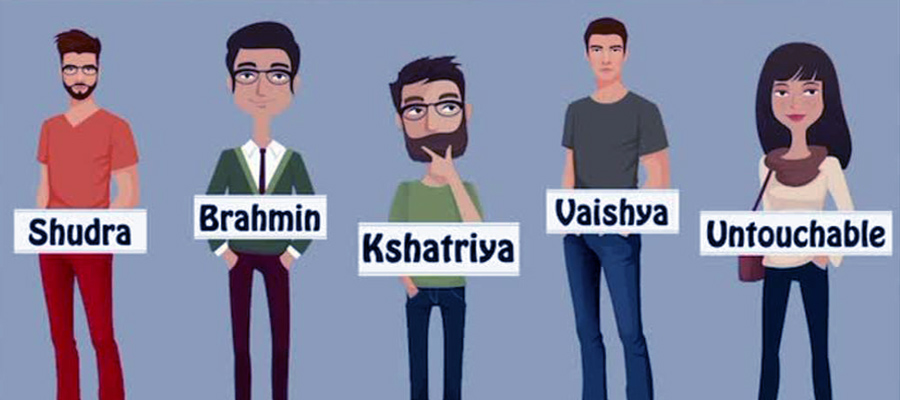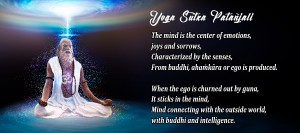Dharma and Religion
Religion is often translated as Dharma in eastern thought today. This reflects the other side of the meaning. Religions such as the Dharma state that we must recognize the universal and the eternal and base our human culture on spiritual goals or higher awareness. However, Dharma cannot be reduced to one religion, book, teacher, revelation or other. Dharma is not trying to spread faith, let alone impose a single belief on all humanity. The Dharma accepts religious freedom as well as individual freedom. Above all, he places individual spiritual practice above any religious institutionalism.
Dharma places the need to act for the good of all above any religious labels or differences. Dharma says it is what we do that matters, not what we call ourselves, and that truth ultimately transcends all names and boundaries. Dharma says that the supreme truth is impersonal, apaurusheya, and cannot be reduced to a human formulation or representative that all must follow, however helpful these may be for certain groups or individuals.
Yet a dharmic approach does recognize that different individuals, groups and communities may want to follow different spiritual and religious paths which need not all be the same and which may have their own respective practices, formulations and values. Dharma accepts pluralism in religion as in all of life, including the freedom of individuals to differ and disagree on matters of religion, as long as they do not turn these differences into a pretext for conflict and violence.
At a higher level, Dharma embraces Yoga as its Moksha Dharma or teaching about the liberation of the soul, which is a matter of sadhana or inner spiritual practice through the science and art of meditation.
Dharmic Values and Ethics
Dharma rests upon certain clearly defined universal values and ethics. These are not simply dictated, laws or commandments but a recognition of how life works and how we can attune ourselves to the consciousness of the greater universe. Such dharmic values are perhaps most simply defined in the basic principles behind Yoga practice of non-violence (Ahimsa), truthfulness (Satya), self-control (Brahmacharya), non-stealing (Asteya) and non-acquisitiveness (Aparigraha).
There is no living being that wants to be hurt. We ourselves do not want to be hurt, so honoring the universal dharma, the universal culture as it were, we do not seek to harm anyone. Similarly, we do not want to be deceived. There is no creature that wants to be deceived, so honoring the universal dharma we tell the truth. Dharmic ethics, therefore, are a matter of universal courtesy, as it were, not only towards others but also towards ourselves. Without such dharmic ethics, we cannot have access to the cosmic mind or the greater civilization of the universe, which is one of consciousness, not merely of science and technology.
Towards Universal Dharmic Movement
Today humanity is suffering from a global crisis, which is not simply a lack of resources but a crisis of values. Today we must learn to coexist and pluralism, not only at a political level but also at cultural and religious levels, is essential. We cannot survive as a planet by promoting national, cultural or religious boundaries as final, as that is to deny the greater unity and value of humanity as a whole. A universality vision of Dharma can help us in this direction because Dharma does not divide human beings up into opposing camps. It says we are all of one family and must all eventually come to the same truth and self-realization, albeit according to our own path and in our own time and manner.
Great modern teachers from India like Mahatma Gandhi, Swami Dayananda, Swami Vivekananda, and many others from all over the world have looked into and provided their insights about creating a new social order or Dharma. Many Buddhist teachers, like the Dalai Lama, are also promoting greater dharma for humanity.
Ultimately, there needs to be a new renaissance in dharmic thinking. This implies a great deal of questioning, deep thought and profound meditation, an endeavor that may take decades to come to real fruition. It must rest upon an uncompromising pursuit of truth, not simply an attempt at social accommodation, appeasement or pleasing everyone. Universal dharmic order is not a simple matter of a new political party but an infusion of higher values into our social interactions, which means a new approach to politics that considers not only the outer human being but the inner essence of the soul.
A new world order defined by Dharma not simply by religion, politics, or commercial concerns, it is crucial for our way forward as a species and can help promote and preserve the good in all. It is important that regard for the universal Dharma is brought into both our personal lives and into our societies. Otherwise, our civilization may continue to flounder and is unlikely to find peace or harmony with life. This is a matter first of all of upholding Dharmic principles and practices in how we live and think. The work begins with each one of us.





